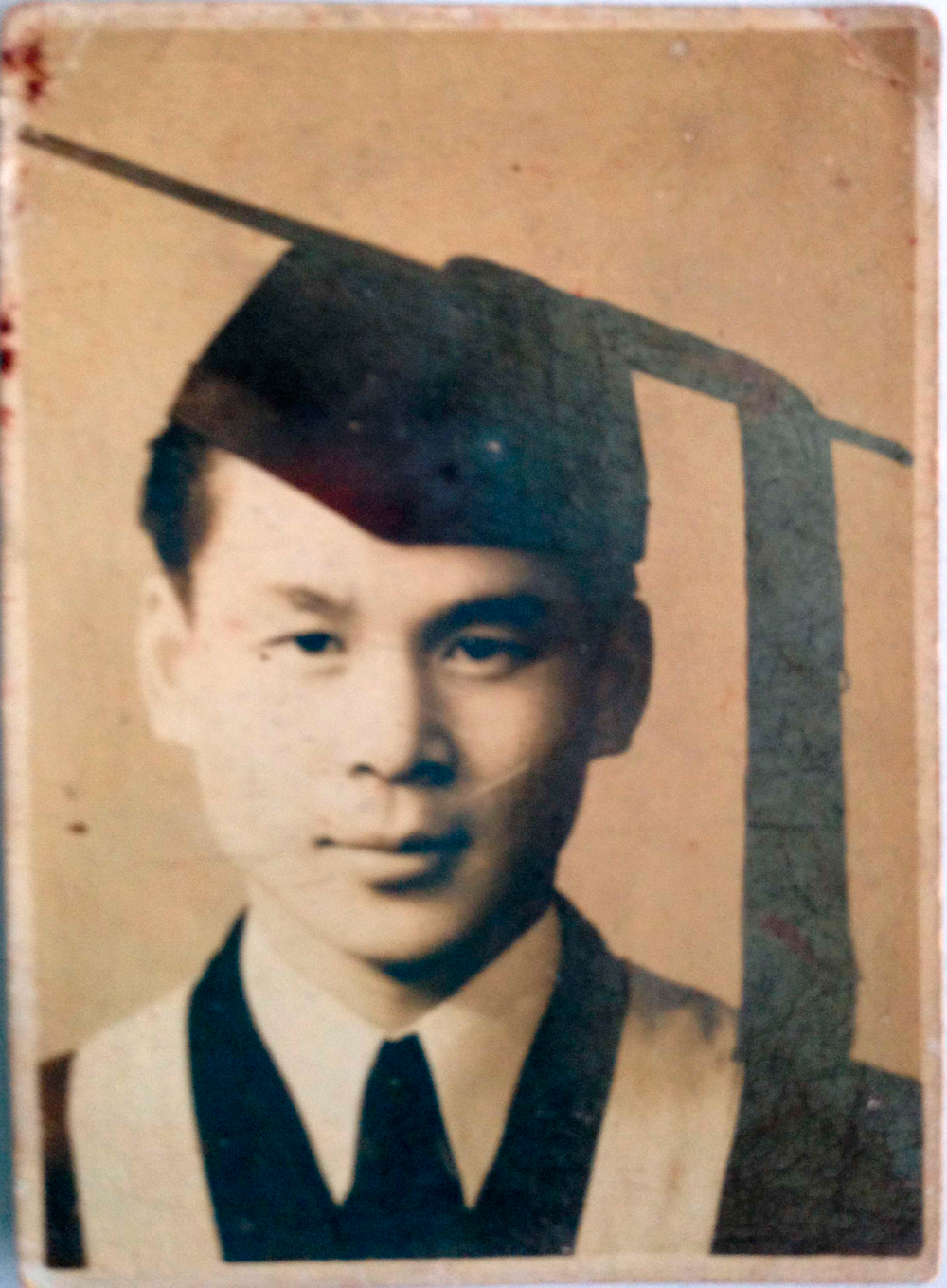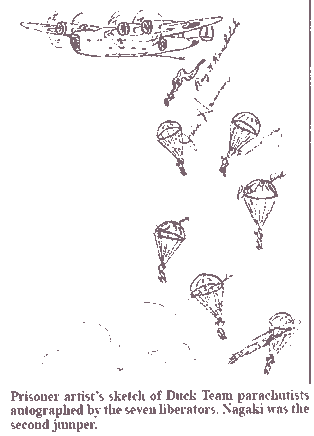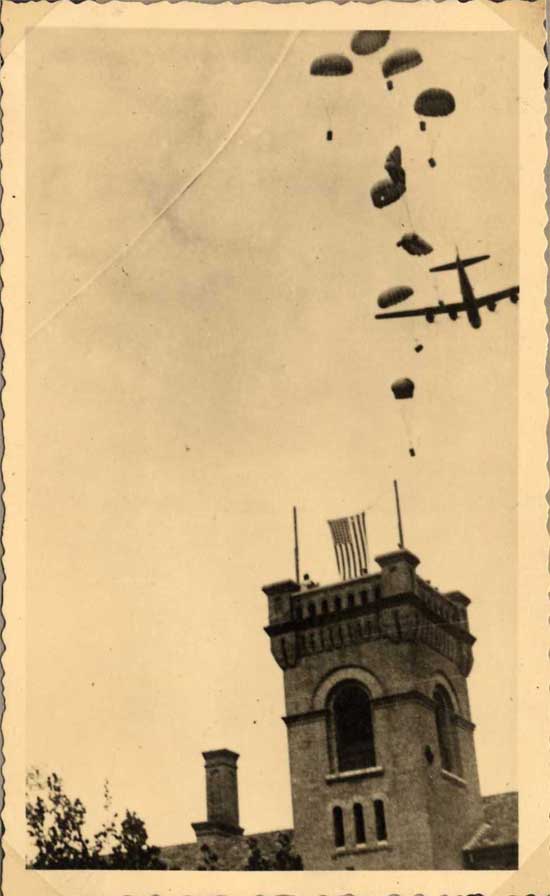Remarks by Wang Chenghan, Member of the Duck Mission Team to Liberate the Weihsien Concentration Camp
(August 17th, 2015)
I remember: On Aug. 17, 1945 at 9:30 AM, I parachuted into a sorghum field, a few hundred meters away from the Weihsien Concentration Camp. I was the youngest of the 7 persons. In that year, I was only 20 years old. Among other members of the team, radio operator Peter Orlich was 21 years old while the other five were between 25 and 29 years old.

I was graduated after studying in the “Interpreter Training Class of the Bureau of Foreign Affairs” in Chongqing for 25 days. On Apr. 25, 1945, I was sent to the “Interpreters’ Pool” in Kunming, and selected in S.O. by O.S.S. In Aug., shortly after I returned to O.S.S Headquarters in Kunming, Japan surrendered. I was reappointed to S.I. and transferred to a mission team led by Major Stanley Staiger.
To avoid Japan taking deadly revenge against the foreign nationals in the camp after it failed and surrendered, the primary task of the armies was rescuing the imprisoned foreign nationals and prisoners of war. On Aug. 16, 1945, our team flew from Kunming to the Forward Echelon. The next morning when we arrived at the Xi'an Airport, we finally knew that the task of our team was liberating foreign nationals in the Weihsien Concentration Camp. In the meantime, three mission teams respectively went to Shenyang, Beijing and Hainan Island to execute the same task.


The 7 of us quickly gathered together, heavily-armed, planning to enter the camp. At that moment, many foreign nationals had rushed out of the gate. Without being stopped by the Japanese guards, they directly carried us through the gate. It was unexpected to us.
There were about 1,500 foreign nationals imprisoned in the camp. They had established an autonomous committee early. That day, our team members and the main members of the autonomous committee negotiated with the Japanese senior management, mainly requesting the Japanese to still take charge of the safety of the camp for the time being and provide material supplies for foreign nationals and requesting them to hand over the internal affairs of the camp to our team and the autonomous committee. Moreover, we required the Japanese to vacate their residence for the use of the team members.

On Aug. 27, ten B-29 large bombers flying from the U.S. military base in Okinawa airdropped a large quantity of necessities which mainly included foods, medicine, clothing and other articles for the foreign nationals. Then, such necessities were distributed to them. On Aug. 30, a team of over 20 men led by U.S. Colonel Weinberg came to the camp and took over the matter of sending the foreign nationals back to their countries. Then, the team belonged to Service of Supply (S.O.S.). After completing the handover procedures, our Duck Mission Team basically completed our mission. B-29 bombers droping food canisters over Block-23-Weihsien
(Provided by Sui Shude, Weifang Foreign Affairs Office)
#



